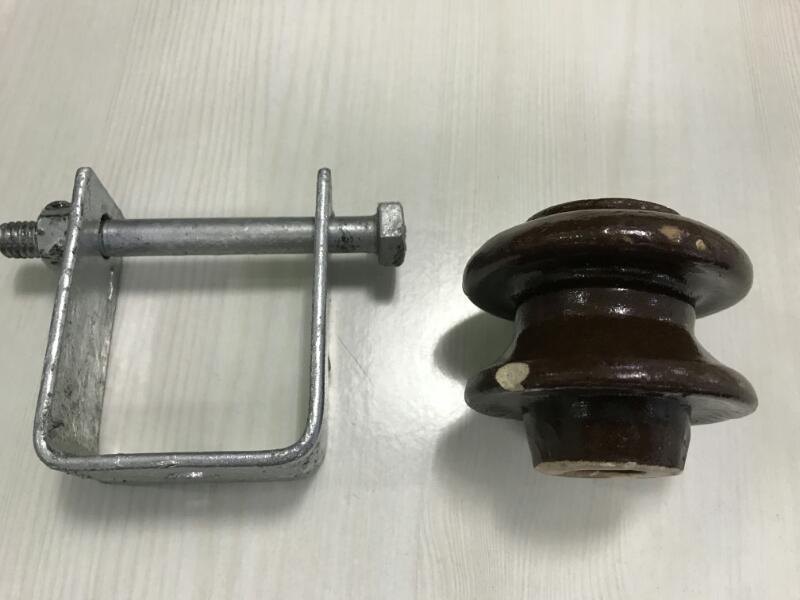
A shackle insulator is an insulator designed to support and insulate conductor wires from the support structure. It also provides a mechanical strength to withstand various environmental conditions. Shackle insulators helps to ensure safe and efficient transmission of electricity. They also help to maintain the reliability and integrity of the electrical system. its structure consists of a metal component, cap and pin, hardware and weatherproofing. The combination of materials and components ensures the insulator withstands the stresses. Shackle insulators offer mechanical support and electrical insulation to ADSS and OPGW cables. ADSS and OPGW cables differ due to the nature of the cables. They offer both electrical transmission and fiber optic communication capabilities. They prevent electrical current from flowing between the metallic components. Shackle insulators are from materials such as porcelain, glass or composite materials.
Design of shackle insulator used in ADSS and OPGW cables
Shackle insulators used in the ADSS and OPGW cables must consider mechanical strength and insulation. They strive to balance mechanical strength and insulation to ensure safety and reliability. The following is a general outline of the design considerations for shackle insulators.
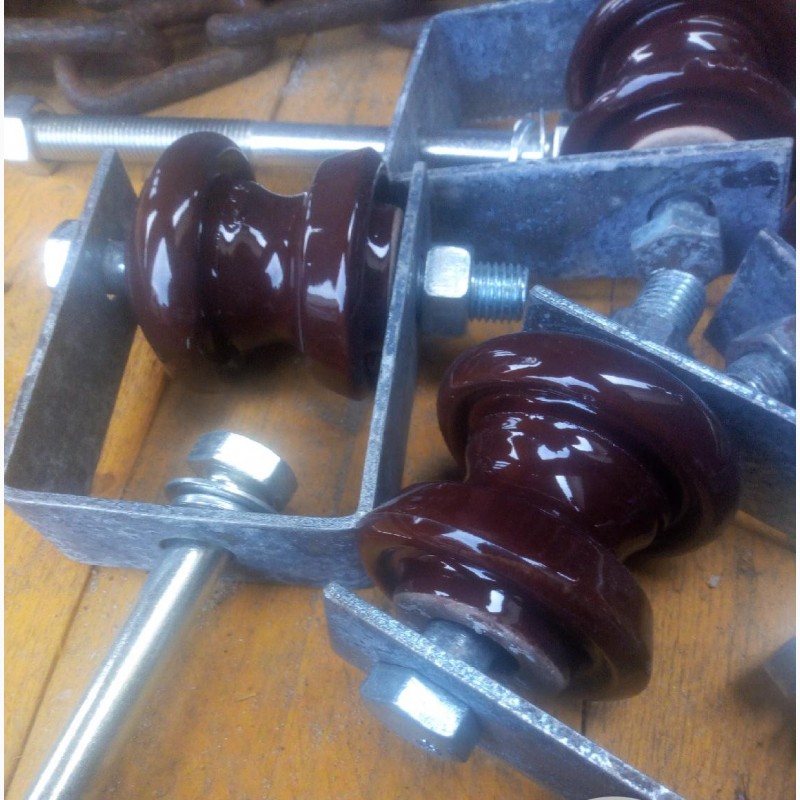
- Material selection – the insulator part should be from high strength, non-conductive materials. The materials offer electrical insulation properties to prevent current leakage. The shackle should be from durable and corrosion resistant materials like steel or aluminum.
- Mechanical strength – the insulator should withstand tenson, compression and bending forces. They should consider material thickness to ensure enough mechanical strength.
- Shape and configuration – the insulator part may have several shapes depending on the specific requirements of the installation. Common configurations include disc, pin or suspension insulators. It has a loop at one end for attachment to the support structure. It has a connection point for the insulator at the other end.
- Electrical insulation – the insulator part must provide reliable electrical insulation. This is to prevent current leakage between ADSS or OPGW cables. This requires attention to the material properties and design geometry. This is to reduce the risk of electrical tracking.
- Attachment hardware – shackle insulators attach using hardware such as bolts, nuts and washers. They should be having designs to fasten the shackle insulator to the support structure. This is while providing enough clearance and insulation.
Benefits of using a shackle insulator
Using a shackle insulator provides several benefits including mechanical support and reliable insulation. This makes them a preferred choice for many overhead power line applications. Additionally, it is advisable to check on the benefits to ensure they meet the intended application needs. It also helps to make an informed decision for your project. the following are the common benefits of the shackle insulator.
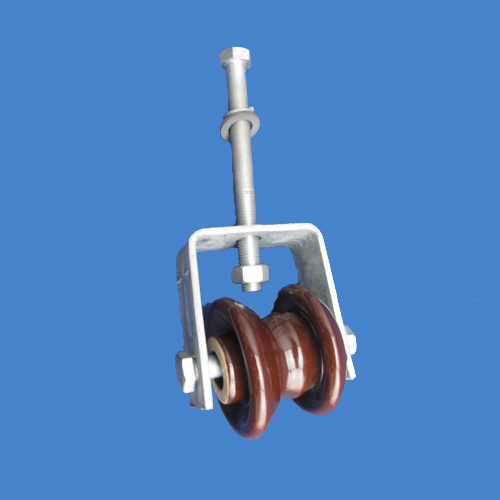
- Mechanical support – insulators provide a strong attachment point for ADSS and OPGW cables. This helps to distribute mechanical loads and maintain the integrity of the electrical system.
- Versatility – the insulators can work with various types of conductors and support structures. They also accommodate different sizes and types of conductors. This is while providing the necessary mechanical support.
- Easy installation and maintenance – they are easy to install and maintain compared to other types of insulators. Their design and attachment hardware makes them easy to replace and reduces downtime.
- Electrical insulation – the insulators prevent electrical current from flowing between the conductors and the support structures. This helps them reduce the risk of electrical faults, short circuits and power outages.
- Corrosion resistance – they are from materials that resist corrosion like ceramic and porcelain. This helps to prolong the lifespan of the insulators and ensures continued performance.
- Cost effectiveness – shackle insulators offer a cost-effective solution for providing mechanical support and electrical insulation. They have simple designs, durability and long-life service. This contributes to lower installation and maintenance costs compared to more complex insulator designs.
Challenges and issues facing use of shackle insulators
While shackle insulators offer the benefits to power lines, they also face different challenges. These challenges need different development efforts to improve the design and performance. It also requires implementation of maintenance and inspection programs. This helps to detect the issues before they escalate. Also, predictive analysis, remote monitoring and condition-based maintenance helps to optimize the performance. The following are the common challenges and issues facing the use of shackle insulators.
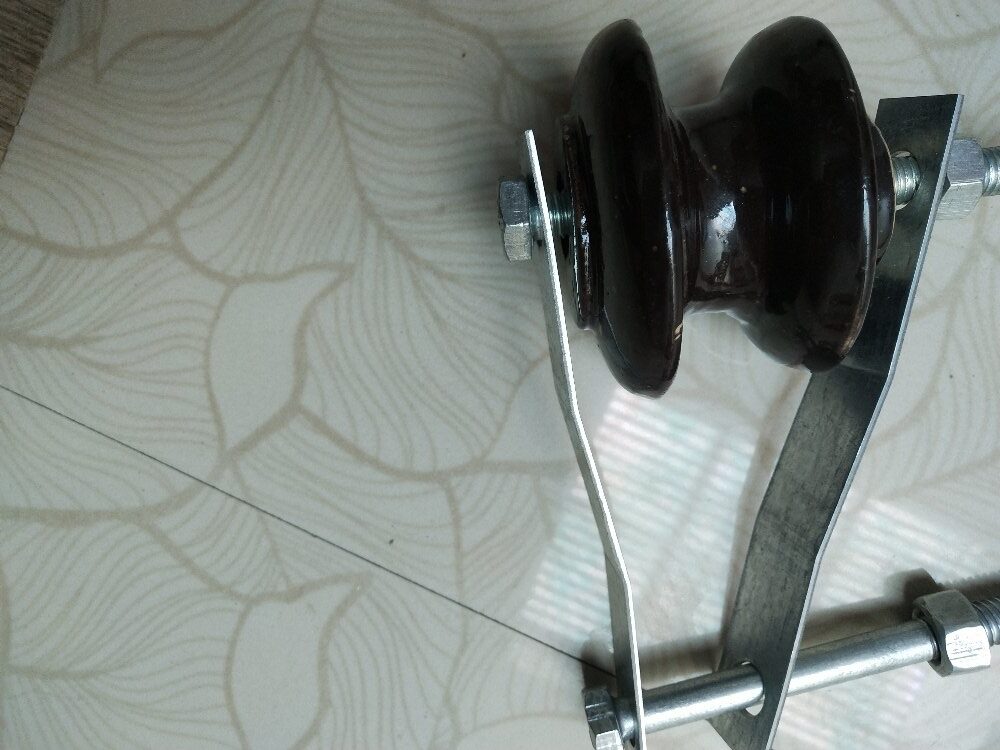
- Compatibility with new technology – use of new technologies like smart grids and renewable energy may face compatibility issues. Upgrading insulators helps to meet the requirements of the new technologies. This may however pose logistical and cost challenges.
- Vibration and galloping – galloping exerts mechanical forces on shackle insulators. This increases the risk of damage. proper vibration dampening measures and insulator designs are common ways to mitigate the risks.
- Electrical tracking and flashover – shackle insulators are susceptible to electrical tracking and flashovers. Contaminants on the insulator surface creates conductive paths for leakage currents. This leads to partial charges, arcing and flashover events.
- Installation and maintenance – specialized equipment is necessary to install and replace the shackle insulators. This leads to increased installation and maintenance costs.
- Corrosion and environmental damage – shackle insulator face conditions such as moisture, UV radiation and chemical pollutants. These factors can lead to corrosion or degradation which weakens the attachment hardware. It may also lead to the reduces lifespan and reliability of the insulator.
- Mechanical stress – this includes tension, compression and bending in areas with ice, wind or seismic activity. Mechanical stresses can lead to fatigue, deformation or breakage of the insulator.
Supplier or vendor information for shackle insulator
There are several suppliers and vendors in the market for shackle insulators. It is important to consider product quality, reliability, pricing and customer service. It is also wise to inquire about product specifications, certifications, lead times, order quantities and shipping options. Also, compare many suppliers and get quotes to help make an informed decision. TTF Power systems offers a wide range of electrical insulators. This is including shackle insulators, post insulators, pin insulators, corona rings among others. Reach out for all your transmission and fiber optic application needs. The following are the various options and factors to consider when selecting the suppliers for shackle insulators.
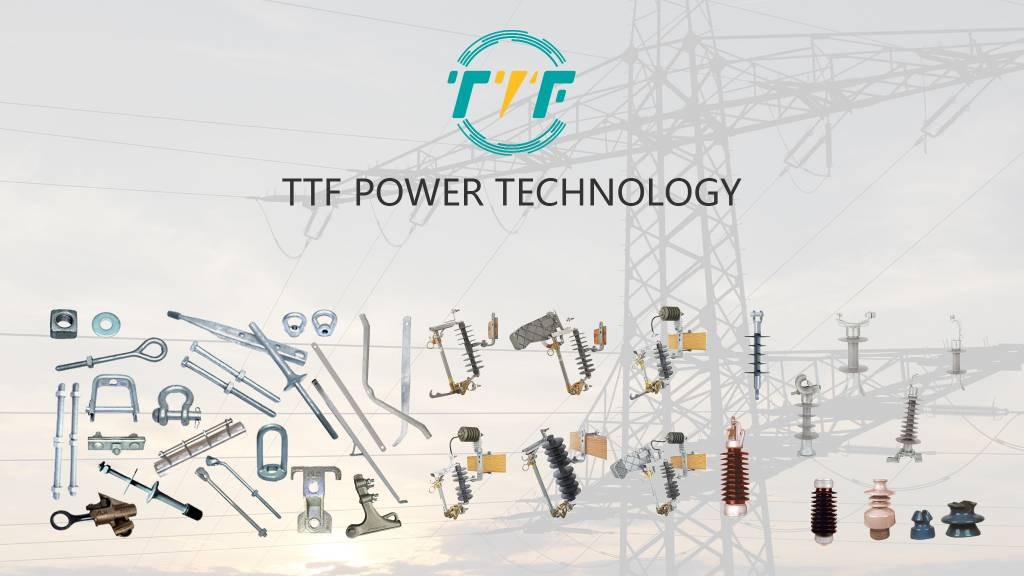
- Product quality – ensure the supplier offers products that meet the relevant industry standards. They should have a track record of producing high-quality products that meet expectations.
- Electrical equipment manufacturer – most of the established electrical equipment manufacturers produce shackle insulators. They also known for producing a wide range of insulators and other electrical components.
- Specialized insulator manufacturers – some of the manufacturers offer a diverse selection of insulator types. This is including shackle insulators and other overhead power line applications.
- Prices – balance the cost of the insulator with quality and reliability. Compare prices from many suppliers to ensure you get competitive rates for the quality of the products.
- Local suppliers – there may be suppliers of electrical equipment and components in your location. They may offer competitive pricing and personalized services for your needs.
- Distributors and suppliers – electrical distributors and suppliers may carry a variety of insulator products from different manufacturers.
- Product range and availability – consider whether the supplier offers a wide range of shackle insulator products. This provides options for different voltage ratings, configurations and materials.
- Online market places – these includes marketplaces like Alibaba, Amazon and eBay. They offer listings of shackle insulators from various manufacturers and suppliers.
- Sustainability and corporate social responsibility – consider the suppliers commitment to sustainability and environmental stewardship. Check for suppliers who focus on sustainable manufacturing processes.
Community forums and interactions for shackle insulators
Engaging in community forums and interactions for shackle insulators help to gain insights on issues. Participating in the said groups helps to connect with professionals, share knowledge and stay informed about advancements. The following are the common places to find relevant discussions.
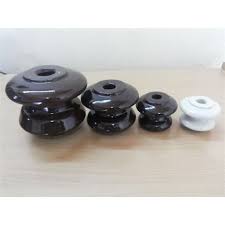
- Electrical engineering forums – websites and forums dedicated to electrical engineering have sections for discussions. Examples include Electrical Engineering Stack Exchange forum and Engineering.com.
- Professionals’ associations – these may offer online forums, discussion boards or community platforms. They include IEEE and CIGRE where members can exchange information and insights.
- Industry events and conferences – this includes industry events, conferences, webinars and workshops. They offer platofrms and discussions related to electrical engineering. They provide opportunities to engage with professionals and engage in discussions about shackle insulators.
- LinkedIn groups – this includes groups related to electrical engineering, power transmission or utility infrastructure. They provide opportunities to connect with professionals in the field. You may also participate in discussions about shackle insulators.
- Online communities and subreddits – these include platforms such as Reddit communities. Reddit is mainly dedicated to various aspects of engineering. They may also have subreddits related to electrical engineering, power systems or infrastructure.
Frequently asked questions
Shackle insulators are from materials such as porcelain, ceramic, glass or composite polymers. The shackle part is from galvanized steel or aluminum.
Consider product quality, reliability, prices, product range and availability, technical support and certifications. Also, consider customer support and sustainability.
The benefits include mechanical support, electrical insulation, versatility, corrosion resistance and ease of installation and maintenance.